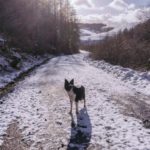The task of choosing the 100 best folk albums of the year never gets any easier. 2018 was no exception and I could have chosen well over 100 albums and still not scratched the surface. All anxieties aside, I have managed to select just 100 albums and alongside this list, there will also be a few individual Top 10 lists from some of our feature writers coming soon.
The purpose of this list is not just to highlight what I may consider the best but also to share with you a journey through the year. The albums I’ve chosen range from the experimental through to the traditional and in many ways reflects the breadth of what we cover on Folk Radio UK. This is just a small part of a much bigger journey but it’s one I hope you enjoy us sharing with you. The list below does not run to the end of the year, I had to stop somewhere and I wanted to get this out to you all before Christmas so be sure to check all our reviews and Featured Albums here. Also, the list does not include live albums, re-issues or compilations.
One last thing…as Editor, I always send albums that I love to our reviewers, so, as far as I’m concerned, the many albums we have reviewed over the past year have already made the cut. OK, that’s enough waffling, here are the first 20 albums in no particular order.
Listen to the accompanying Best Folk Albums of 2018 Spotify Playlist which will grow as we reveal more of this year’s highlights. Plus we have a new Folk Show (details here) featuring a three-hour mix of music from the albums featured in Part 1 and 2 of our ‘Best of’below:
Best Folk Albums of 2018
Part 1
Part 2
Part 3
Part 4
Part 5
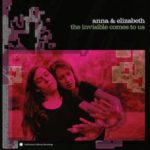
Anna and Elizabeth are curators of a rich and varied musical tradition, but they are also dauntless innovators who realise that change and growth is an important part of that tradition. This willingness to experiment has helped produce a piece of work that, if there is any justice in the world, will be recognised as one of the groundbreaking American folk albums of this century.
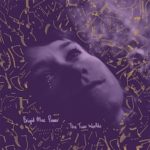
Musically, The Two Worlds is mesmeric, therefore springs no surprises, retaining the carefully atmospheric, dreamlike ambience of its predecessors. Centred around Brigid’s trademark clangorous, heavy-sustain piano tone (or reverberant guitar and organ) for a backdrop, all detail is couched in a languid analogue sound that oozes authenticity.
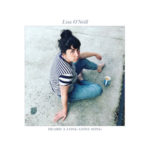
Lisa O’Neill has with Heard a Long Gone Song. Lisa, though, is unique. It’s certainly raw on the surface, and the album’s abrasive nature is absolutely part of its appeal. Beneath that coarse exterior, though, lies a heart of gold, a mind as sharp as a razor, and the soul of a poet. Heard a Long Gone Song is easily one of the greatest surprises I’ve enjoyed for some time; an exceptional album that will make the trad music scene stand up and take notice; if it doesn’t, there’s something far wrong with the trad music scene.
Toby Hay – The Longest Day (The States51 Conspiracy)
This willingness to engage – emotionally and physically, with internal and external landscapes – is what sets Toby Hay apart from virtually everyone else currently making instrumental folk music. The Longest Day is a triumph, a thing of shimmering beauty.
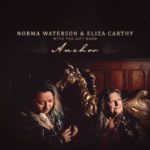
Anchor is a deeply intelligent and fresh selection of songs that could at first look hard to join on paper, but the theme (the meaning of life?) of perennial bonds through family friends and music shows its hand throughout and wraps up something very special. Another deeply satisfying, beautifully sang and arranged album of songs from a peerless musical family.
Throughout the album there are the small signature touches that help make Mike Vass’ music so special – ethereal keys and a snatch of sampled, spoken, vocal; a rusting thumb piano; or even Sweet Harmony‘s hydrovane sail creating a wind-powered bass drum – the spices that enhance the combination of Mike’s melodies and his friends’ skill as performers. Notes From The Boat offers a feast of musical delights. Warm, engaging melodies and sparkling performances combine with Mike’s peerless skills as an arranger for a truly delightful album.
Laws of Motion has an instant effect on the first hearing. The familiar, carefully crafted structure of Karine Polwart’s work still does as much to hold the listener’s attention as her award-winning 2005 debut, Faultlines, did – as has every album since. The past few years have seen Karine turn her talents to numerous projects, in varied disciplines, and with resounding success. Songs have power, and Karine Polwart has a gift for harnessing that power. Her 2018 return to the studio to record Laws of Motion is a perfect reminder of her talent as a performing singer song writer and a worthy addition to her work; an exceptional album, from an exceptional performer.
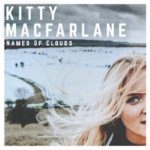
The final song on Kitty Macfarlane’s astonishingly accomplished debut album is a new setting of Gerard Manley Hopkins’s poem, Inversnaid. It is a celebration of ‘wet and of wildness’, of ‘the weeds and the wilderness’ and the ‘darksome burn, horseback brown’. The alliteration, the compound words and those borrowed from dialect, the affinity with nature and the ecstatic but reverent tone are all hallmarks of Hopkins, that most recognisable of verse stylists. You would think that a song like this would stand out, would be instantly recognisable as the work of one of the nineteenth century’s most brilliant poets. But amazingly, this closing statement feels of a piece with the rest of Namer Of Clouds, a fact that establishes Macfarlane as a singular songwriting talent….an album to savour, a debut full of old wisdom and bubbling over with new ideas.
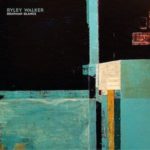
Deafman Glance is the sound of the singer moving to the Southside of Chicago and embedding himself into that Chicagoan jazz and noise culture…Ryley’s most exploratory album yet….while certainly being the most challenging of his albums so far, with music this heady and contemporary blending to make something so cohesive and exciting, Ryley’s ‘Southside Chicago’ album is also arguably his best yet.
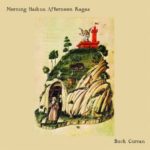
There is an illusory naivety about Buck’s guitar work that makes it at once entirely accessible yet invites you to explore more. Repetitive phrases, sometimes almost non-verbal verses, are surrounded by choruses. At other times, themes are developed that are unpredictable yet non-threatening. Certainly, the ebb and flow of nature shines through. Morning Haikus, Afternoon Ragas is an album of poetry in guitar music. The space around Buck Curran’s music allows it to grow and change, to become part of the landscape yet also allows you to become part of it as well.
If you like your music honest and free from studio beeps and production flourishes and your vocals real and untouched by autotune, then this new album from Anglo-American duo Cath and Phil Tyler should hold you. The outstanding piece on the album returns us across the pond and back to Scotland, for ‘Lady Dysie’…Cath and Phil opt for banjo, playing it with a skeletal claw hammer technique bringing the melody to the fore and creating a sense of foreboding that finds Cath’s lone vocal and combines with it to tell a story of yearning that could come from the depths of the castle. It’s a song that shouts of experience and ability and just one on a set free from duds and well worth the eight-year wait.
The Blowzabella brand-name has, inevitably, undergone several personnel changes over the course of its history, but for the past dozen years the lineup has remained stable, a seven-piece comprising Andy Cutting, Jo Freya, Paul James, Gregory Jolivet, Dave Shepherd, Barnaby Stradling and Jon Swayne. And what a team, whose members so obviously get on brilliantly together and play to each other’s strengths, hence the at times quite overwhelming (though not over-the-top) spirit of abundant joie-de-vivre in their self-confessedly maverick music-making. As well as the characteristic Blowzabella fire and spice, there’s a perennial abundance of contrast between the tempos and settings on Two Score, and never a dull moment for the listener.
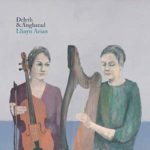
Despite the richness of Delyth and Angharad’s individual work, it is humbling and satisfying to hear this mother and daughter each time they collaborate. In many ways, they personify Welsh folk music, but as devotees to the genre, rather than icons of it. Though deserving of the praise awarded to skilled musicians in any genre, DnA do not seek it, as their music is born from joy, love, collaboration, and community. It is deeply personal in both content and pursuit, yet resonant far beyond the branches of their family tree. Effortlessly enjoyable, the silver thread of “Llinyn Arian” is one which binds us to its creators, and which we will hopefully encounter again upon their next release.
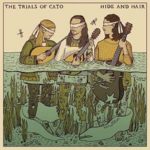
Rising stars The Trials of Cato are about to hit the earth’s atmosphere with a bang, so sit back and enjoy the fireworks. Something very special has landed. Formed in Beirut while the three band members were in Lebanon working as English teachers…If there’s a more exciting debut album from a folk band this year, then I haven’t heard it. This is a very special release, and I can only suggest you get on board for hopefully a long and thrilling ride to come.
Review | Direct Order | Spotify
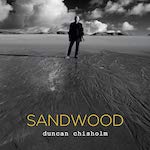
…Duncan brings in a mention of Cape Wrath, the headland roughly 5 miles north of Sandwood that marks the NW corner of Scotland, associating it with death and a dark history. Even without records, there can be little doubt that Sandwood itself has such elements in its history. The rocks surrounding the bay are some of the oldest that can be found in the UK, the earliest signs of human activity are pre-Roman and it was a favoured place for Viking longships to come ashore. But of modern man, there is little trace. A forceful reminder of the transient nature of human existence and the inspiration for Duncan to make his own “eternal link to this beautiful place”. For us, as listeners, this is music in which to immerse ourselves, allow our minds to build our own links and maybe, one day, to visit. For me, the next time I venture north of Scourie, that visit is a certainty.

Where it really succeeds, however, is in the overall package; in its introduction to the entire concept of the African-American West, chronicling the role of those involved with a sharp focus, and in its creation of a historical artefact which both entertains and educates. This is an impressive and important contribution to the oeuvre of American music, which manages to resonate with those for whom the first-hand experience of the subject matter is far-removed; it will surely become an enduring testament to the Black cowboys and what they represent.

Eamon inhabits two worlds. There’s the New York trad Irish scene, where his knowledge of the music and technical skill make him a popular choice for the area’s trad musicians. Then there’s the altogether different, but not entirely separate world of the singer/song writer, where his contemplative poetry intrigues the curious; and the intricate yet seemingly sparse arrangements seem to effortlessly ensnare our attention. It’s been proven before that the two aren’t necessarily mutually exclusive, but finding the right balance takes a master’s touch, and Eamon O’Leary has that touch. All Souls seduces the senses with songs that individually open from a distance and come rapidly closer, but collectively flow along like a gentle river current. An album that’s sure to become a firm favourite.
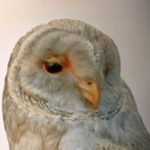
Like Robertson’s book, this project is already a significant achievement and testament to O’Rourke’s artistic endeavour. In a similar way to any Spiro or Three Cane Whale album, or even last year’s An Idea in Everything by David Greenberger, Glenn Jones and Chris Corsano, 365 stitches together ideas and tunes inspired by various genres to create a whole tapestry to surprise and delight. The hard copy album itself is also a work of art, with beautiful images and extracts from Robertson’s book beside each of the twenty-two tracks making a satisfyingly thick set of sleeve notes that (of course) everybody should choose over a download. It’s this combination of attention to detail in every aspect, plus a great idea and considerable skill from a reliably exciting pair of musicians, that results in 365 being an excellent piece of work from the ground up that gently bewitches the listener with subtlety and pathos and lasts in the mind well after the final note has rung out.
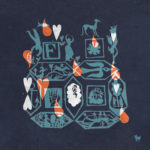
The Furrow Collective are right at the very top of the game when it comes to traditional music. No-one else is as innovative, and in a genre where innovation is sometimes seen as incompatible with the conservation of tradition, they prove that the opposite is true, that by treating folk music in an exciting new way we are helping to safeguard its future. And it is no exaggeration to say that if the future of folk music sounds like Fathoms we are in safe hands indeed.
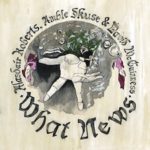
Where last year’s Pangs record incorporated the use of a full band, with glockenspiel and flute working alongside electric guitars to great effect, here Roberts has taken an instrumental back seat and focused solely on the singing, while employing David McGuinness to play keyboards and sonologist Amble Skuse to structure soundscapes using electronic methods. The result is magical, clean and refreshing…a set of minimalist music and vocal clarity that is starkly beautiful in all its boldness.
Review | Norman Records | Spotify

